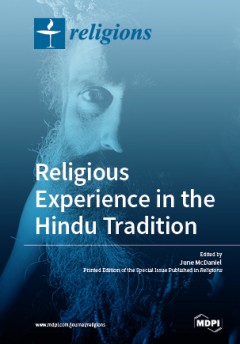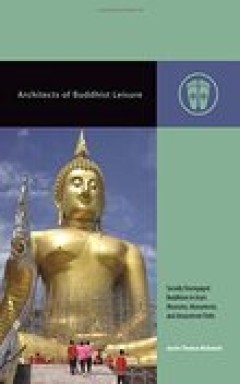Filter by

Thoughts and ways of thinking
"Why do we think differently from one another? Why do religious people adhere to their faith even against reason, whilst atheist thinkers label it “nonsense”? Why do some judges turn more to moral values and others less? Why do we attach different meanings to the same words? These questions can be tackled on psychological or sociological levels, but we can also analyze the subjects on the e…
- Edition
- -
- ISBN/ISSN
- 9781911529200
- Collation
- 186 p.; 22cm.
- Series Title
- -
- Call Number
- 210 BRO t

Religious experience in the Hindu tradition
This Special Issue of Religions brings together a talented group of international scholars who have studied and written on the Hindu tradition. The topic of religious experience is much debated in the field of Religious Studies, and here, we present studies of the Hindu religious experience explored from a variety of regions and perspectives. Our intention is to show that the religious experien…
- Edition
- -
- ISBN/ISSN
- 9783039210503
- Collation
- -
- Series Title
- -
- Call Number
- 181.4 REL r

Consciousness and moral status
In this book Joshua Shepherd presents a systematic account of the value present within conscious experience. This account emphasizes not only the nature of consciousness, but also the importance of items within experience such as affect, valence, and the complex overall shape of particular valuable experiences. Shepherd also relates this account to difficult cases involving non-humans and h…
- Edition
- -
- ISBN/ISSN
- 9781138221611
- Collation
- 122 p.; 23 cm.
- Series Title
- Routledge Focus on Philosophy
- Call Number
- 155 SHE c

Architects of Buddhist leisure
Buddhism, often described as an austere religion that condemns desire, promotes denial, and idealizes the contemplative life, actually has a thriving leisure culture in Asia. Justin McDaniel looks at the growth of Asia’s culture of Buddhist leisure through a study of architects responsible for monuments, museums, amusement parks, and other sites. In conversation with noted theorists of materi…
- Edition
- -
- ISBN/ISSN
- 9780824865986
- Collation
- xi, 215 p.; 22 cm.
- Series Title
- Contemporary Buddhism
- Call Number
- 155.09 MCD a

Aesthetics and subjectivity: from Kant to Nietzsche
This new, completely revised and re-written edition of aesthetics and subjectivity brings up to date the original book's account of the path of German philosophy from Kant, via Fichte and Holderlin, the early Romantis, Schelling, Hegel, Schleimacher, to Nietzsche, in view of recent historical research and contemporary arguments in philosophy and theory in the humanities. The original book helpe…
- Edition
- 2nd ed.
- ISBN/ISSN
- 9780719024450
- Collation
- vii, 342 p.; 22 cm.
- Series Title
- -
- Call Number
- 155.01 BOW a

Foundations for moral relativism: second expanded edition
- Edition
- -
- ISBN/ISSN
- 9781783740352
- Collation
- xii + 144 p.; 23 cm.
- Series Title
- -
- Call Number
- 153.4 VEL f
- Edition
- -
- ISBN/ISSN
- 9781783740352
- Collation
- xii + 144 p.; 23 cm.
- Series Title
- -
- Call Number
- 153.4 VEL f

Human and machine consciousness
- Edition
- -
- ISBN/ISSN
- 9781783743018
- Collation
- 234 p.; 24 cm.
- Series Title
- -
- Call Number
- 150 GAM h
- Edition
- -
- ISBN/ISSN
- 9781783743018
- Collation
- 234 p.; 24 cm.
- Series Title
- -
- Call Number
- 150 GAM h

Science as social existence: heidegger and the sociology of scientific knowledge
n this bold and original study, Jeff Kochan constructively combines the sociology of scientific knowledge (SSK) with Martin Heidegger’s early existential conception of science. Kochan shows convincingly that these apparently quite different approaches to science are, in fact, largely compatible, even mutually reinforcing. By combining Heidegger with SSK, Kochan argues, we can explicate, elab…
- Edition
- -
- ISBN/ISSN
- 978-1783744114
- Collation
- 444 p.
- Series Title
- -
- Call Number
- -
 Computer Science, Information & General Works
Computer Science, Information & General Works  Philosophy & Psychology
Philosophy & Psychology  Religion
Religion  Social Sciences
Social Sciences  Language
Language  Pure Science
Pure Science  Applied Sciences
Applied Sciences  Art & Recreation
Art & Recreation  Literature
Literature  History & Geography
History & Geography